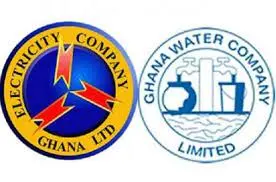Some policy analysts have reacted to the proposal from the utility service providers for the Public Utilities Regulatory Committee (PURC) to increase tariffs.
The Electricity Company of Ghana and Ghana Water Company Limited have proposed an astronomic increase in tariffs for the year 2022. ECG is demanding a 148% increase in electricity tariff, whilst the Ghana Water Company Limited wants 334%.
This has ignited a heated debated among Ghanaians including experts. Among the analysts who have reacted to the proposals is, Dr. Steve Manteaw. He has described the demand of increase in electricity and water tariffs as justifiable, saying, there is a strong basis for an upward adjustment, despite the inefficiencies of the utility firms. According to him, factors such as inflation and exchange rate losses justify the upward increment.
“There is a strong basis for an upward adjustment; if you look at inflation rate, if you look at the cedi depreciation and all that. But what the companies haven’t told us is what component is made up of transmission losses and commercial losses. These are categorised us inefficiency cost”, The Executive Director of ISODEC said in an interview last week.
“PURC has the mandate to ensure that inefficiency cost are not passed onto consumers. Of course to deal with inefficiencies, you need to make investments, but you don’t make investments from tariffs”, Dr. Manteaw expatiated.
But, a Political Scientist and lecturer at the University of Ghana, Professor Ransford Gyampo, has questioned the proposal.
Reacting to the proposed in a Facebook post, last week, he said: “You cannot propose an increment in utility bills across the board like that, at this time when the poor has already been hit hard.”
He, therefore, wants “only article 71 officeholders, who have, but don’t pay, pay for such hikes,” to be made to pay the proposed increase by the utility service providers and “Leave the poor alone!”
Apparently, a policy Think tank, Consumer Unity and Trust Society (CUTS) International, has backed the push for a review of utility tariffs by the Electricity Company of Ghana and the Ghana Water Company Limited.
The think tank, however, maintains that there is the need to speedily address the inefficiencies within the system to make the companies sustainable.
West Africa Regional Director for CUTS International, Appiah – Kusi Adomako, speaking in an interview explained that; “I support the principle that tariffs need to go up to make ECG able to fulfil its mandate. If ECG is deprived of increment, what it means is that ECG may not be able to invest. And we are told that most of the cables and other things are old and need replacement, or we might go back to the dumsor era. Water is also justifiable because the water company buys chemicals. These chemicals are imported into the country. Freight prices have also gone up, exchange rate has also gone up and even the cost of buying those items have also gone up between the last time tariffs were increased. So, we need to allow these firms to be able to get some increment so that the business will be sustainable. When it is sustainable, people will find them attractive to invest in,” he said.
Furthering his argument, Dr Manteaw noted that, in normal business practices, shareholders are mandated to inject capital into the business with regard to equipment renewal and all the capital investments needed.
“The shareholders in this case is the republic (government) and therefore we have to finance these major equipment renewal and maintenance activities from our taxes. They must be budgeted for through the budget and then in terms of the daily operations, you can actually finance through the taxes”, he added.
He said the package given to Aqua Vitens Rand were far more and better conditioned than those given to Ghanaian entities, adding, “I do recall when we went through ECG privatization, we were prepared to do for PDS what we were not prepared to do for our Ghanaian managers”.
For instance, he pointed out “when PDS took over, they asked that all the debts ECG had at the time were to be re-fenced. So it were not part of the account because those were legacy debts…they were not responsible. But we are not prepared to re-fenced for the old ECG”.
“Again, a year before PDS took over, we had denied ECG tariff adjustment (upward adjustment). But when PDS took over, we gladly approved upward adjustment for PDS”, he added.
Furthermore, Dr. Manteaw said “I tend to look at our utility companies sympathetically, a reason being that they really work under severe stress. And the conditions under which they work are not the type that any foreign multinational company will want to work under.”
“I recall we brought in Aqua Vitens Rand, we improve water distribution in this country and by the time we abrogated – we actually refused to renew that contract – we had the phenomenon known as the Kufuor gallons. When the facility reverted to the Ghanaian manager, the gallons disappeared”, he stressed.
In the proposal, ECG also wants 7.6% average adjustments between the periods of 2023 to 2026.
The GWCL argues that while the average tariff per cubic metre in 2019 was 1.27 USD, it was reduced to USD 1.13 as a result of cedi depreciation.
For the GWCL, the current domestic tariff of GHS3.29 per cubic metre to consumers within 0-5 cubic metres is less than what the poor in rural areas pay, which is about 10 cedis.
The water company thus wants a 334% tariff hike.
Source: Adnan Adams Mohammed

